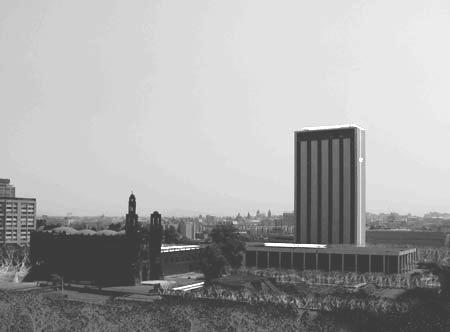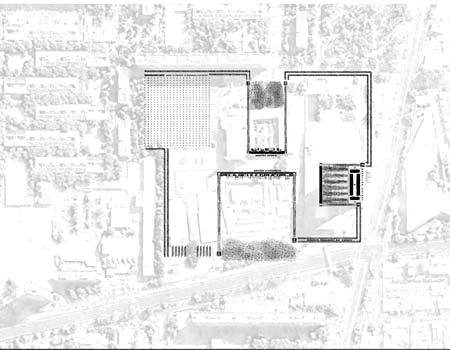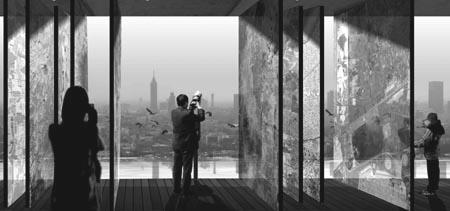9th International Arquine Competition
9th International Arquine Competition
First Prize
The design consists of four pavilions with transitional gardens to display the city in its four historical stages: pre-Hispanic, colonial, modern, and contemporary. The pre-Hispanic culture is expressed in walls and platforms oriented toward their current context (180 m²). A display of stained glass envelops the spaces of the colonial age in its existing context (100 m²). The city displays its permanent metamorphosis around a garden cloister (170 m²), and a series of projections offer an account of the technological world in its current virtual context (100 m²).
This edition of the competition met with a good response, in terms not only of the 536 registrations, but also of the quality and diversity of the 376 designs submitted.
The theme and site of the competition project -a Metropolitan Infographic Center in the Plaza of Three Cultures in Mexico City- were highly suggestive to participants, who reflected the various urban and architectural conditions of the context in their proposals.
The historical resonance and the complexity of the place acted as a conceptual pivot. Remarkable attention was paid to the surroundings of the plaza in the architectures and urban planning proposed.
The jury, made up of Humberto Ricalde, Russell Rudzinski, Margarita Flores, Enrique Betancourt, and Carlos Ruiz de Chávez, grouped the submissions into four categories of design focus.
1. The implantation of an architectural element.
2. The transformation of the site in terms of level and surfaces.
3. The creation of extensive plazas.
4. The establishment of a system of spatial relations in interaction with the site and the city.
Given these focuses, the jury's considerations were influenced by the degree to which the proposals lavished more or less care on the intervention into the site, and the possibility of establishing, by spatial and circulatory resources, connections with its functioning memory all over the city.
Considerations of the urban dynamic of the proposals, the repercussion of design activity, and the understanding of the program in relation to the historical significance of the site were crucial in the jury's final decision. The jury was impressed by the success of the winning proposals in providing new and different surroundings to Nonoalco-Tlatelolco through their interventions, creating an interactive urban space based on its new functions and transformed by actions that underline the preexisting spaces, structures, and promenades even as they give a new sense of place to the site. Humberto Ricalde and Margarita Flores
First Prize
Mexico
Ignacio Santos Morell
Héctor Módica de Caso
Alejandro Delgado García
Daniel López Fernández
Second Prize
Colombia
Luis Rodrigo Callejas
Juan Pablo Martínez
Edgar Ignacio Mazo
Third Prize
Canada
Geoffrey Thün
Kathy Velikov
Gregory Perkins
Farid Joseph Noufaily
Honorable Mention
Mexico
Héctor Francisco Guayaquil Sosa
Enrique Flores Acevedo
Ricardo García Santander
Finalist with Mention
Mexico
Elizabeth Aguilera Arellano
Manuel Carlos Reyes Cedillo
Finalist
United States
Christian Hart Nakarado


